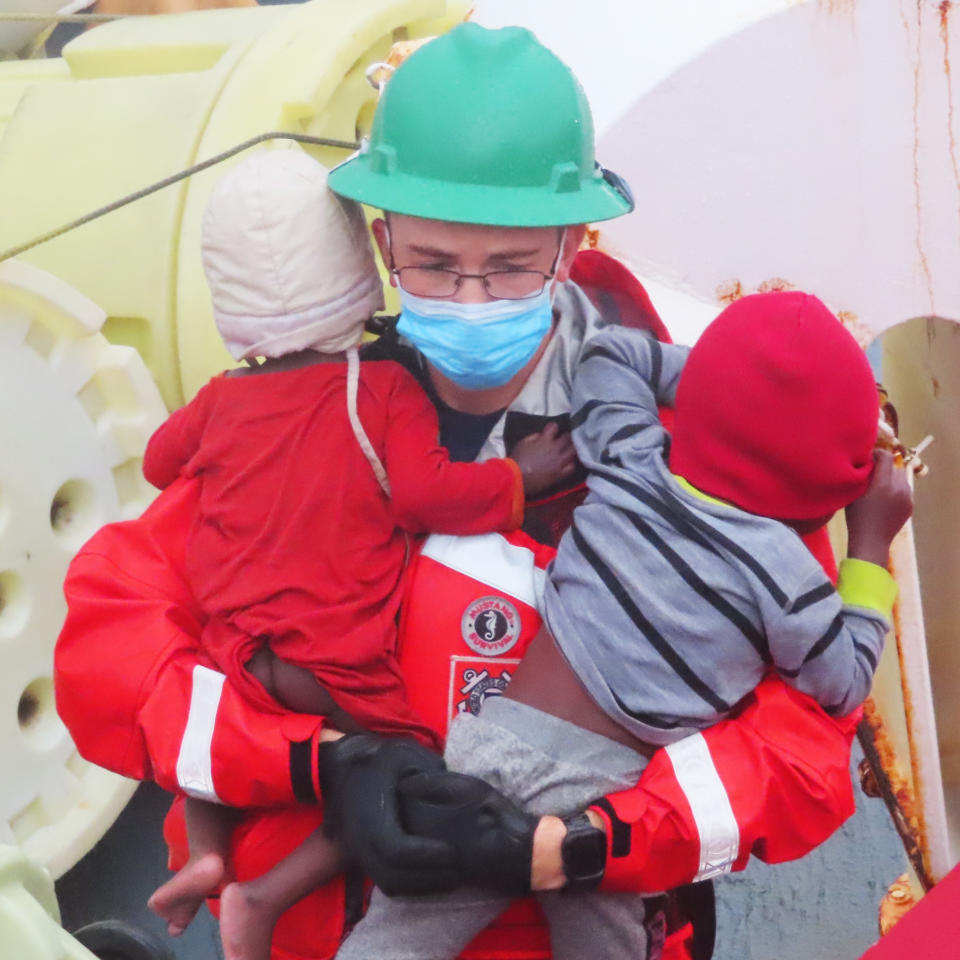More than 100 people rescued from overloaded sailboat before it hit sandbar in Florida Keys, Coast Guard says
More than 100 people were rescued from an overloaded sailboat before it hit a sandbar in the Florida Keys on Monday, the U.S. Coast Guard said.
A good Samaritan reported the vessel to Key West watch standers at around 5 a.m. local time, the Coast Guard’s 7th District tweeted.
Crews responded to the incident off Rodriguez Key after receiving “reports of people in the water” the tweet said.
They encountered “6-10 ft seas, 25 mph winds to safely remove the people from the vessel,” the Coast Guard said.
The rescue effort appeared to be an hourslong endeavor, with officials saying the weather and rough seas presented "a challenge."
Initially, the Coast Guard said 22 people were rescued from the overloaded sailboat.
It later revised that number to more than 100 people, saying dozens had been rescued before the vessel could hit the sandbar off Whale Harbor. The nationalities of those on board the vessel was not immediately clear as of early Tuesday morning.

The rescue comes as Coast Guard Southeast said it was suspending a search for possible survivors after a homemade vessel carrying migrants from Cuba capsized near the coast of Florida over the weekend.
A total of 19 people were believed to be on the vessel, Nicole Groll with the Coast Guard 7th District said.
Six people died, nine were rescued and four are unaccounted for, believed to have immediately drowned, Groll said Tuesday.
"Our condolences go out to the family and friends of those who are presumed lost at sea," Cmdr. Richard Armstrong, deputy sector commander of Coast Guard Sector Key West, said in a statement Monday night announcing the suspension of the search for survivors.
Armstrong said that life jackets worn by some of those on the vessel "certainly saved their lives in treacherous sea conditions."
This article was originally published on NBCNews.com

